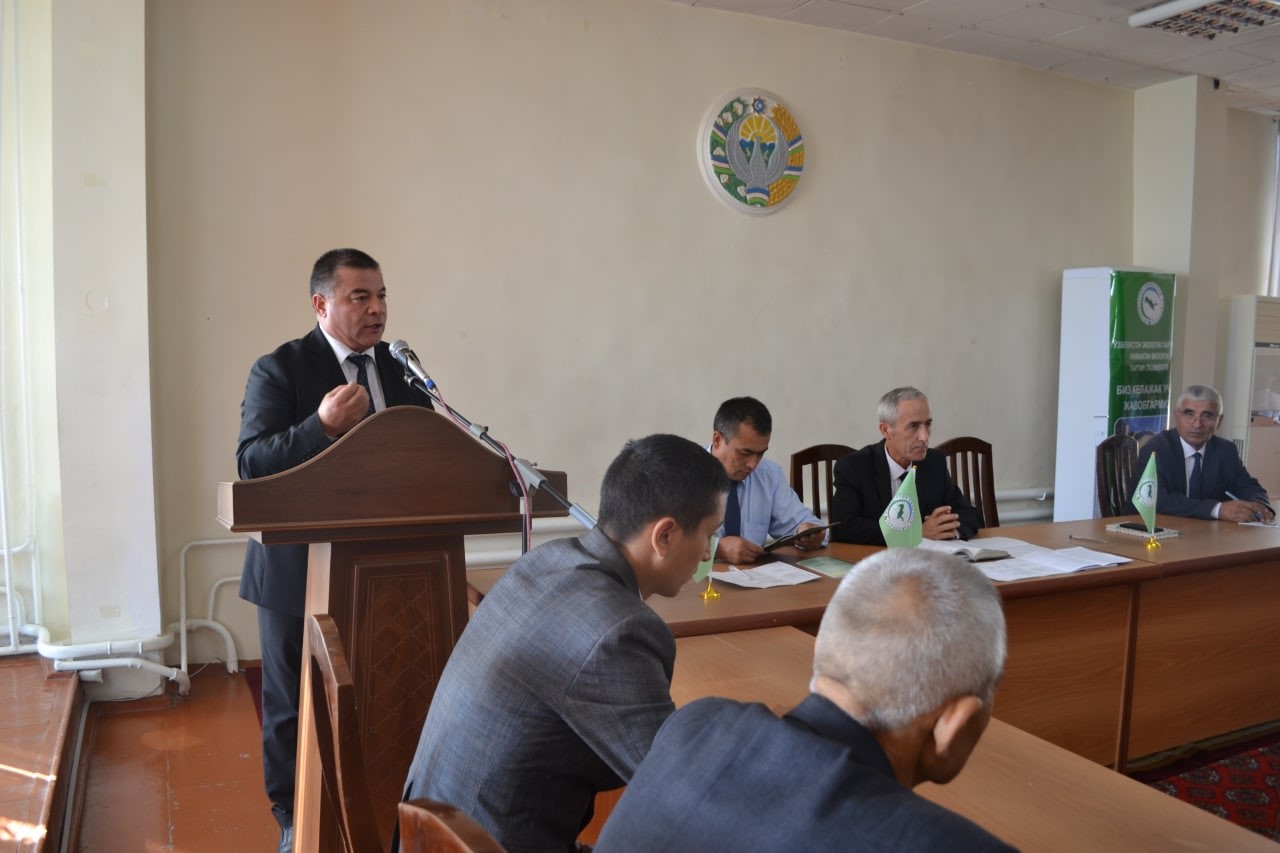SDG. 13.3.5 collaborate with NGOs on climate adaptation
Cooperation with non-governmental and non-profit organizations on issues of climate change and climate adaptation in the country
Today, the world community recognizes climate change as one of the most serious problems facing humanity. The UN Framework Convention on Climate Change has identified two main areas for addressing it: reducing greenhouse gas emissions and adapting to observed and expected climate changes. Failure to take timely measures and further increase in the amount of greenhouse gases in the atmosphere can lead to untold consequences of climate change.
An event on climate change, its consequences and prevention of climate change was held with the participation of Kadirkhan Sopijanov, chairman of the Namangan regional council of the Ecological Party of Uzbekistan, members of the Namangan regional council of the Ecological Party: Abdugoffor Nazarov, associate professor of NamSU, Nuriddin Bakhriddinov, associate professor of NamECI, teachers and students of NamECI.
At the event, it was proposed to implement the following measures to prevent and adapt to climate change:
1. Reduction of greenhouse gases. For this, first of all, it is necessary to reduce the amount of greenhouse gases emitted into the atmosphere by introducing environmentally friendly technologies in production enterprises and organizations that emit pollutants into the atmosphere.
2. Further improving the quality of fuels and increasing the number of environmentally friendly vehicles, including the creation of bike lanes convenient for the general public, will in turn reduce the amount of greenhouse gases.
3. Implementation of landscaping works. Expansion of green areas, especially green areas on the edge of cities and highways, serves to reduce the amount of harmful substances.
4. Wise use of water. Organization of drip irrigation, rational use of water resources, in turn, serves to adapt to climate changes.
5. Development of green economy, i.e. use of waste-free technologies, energy-saving, resource-saving, waste-free, low-waste technologies
6. Use of renewable energy sources. With the use of solar and wind energy, the consequences of climate change can be reduced to a certain extent.
Vice-rector for Academic Affairs: Q.Inoyatov



